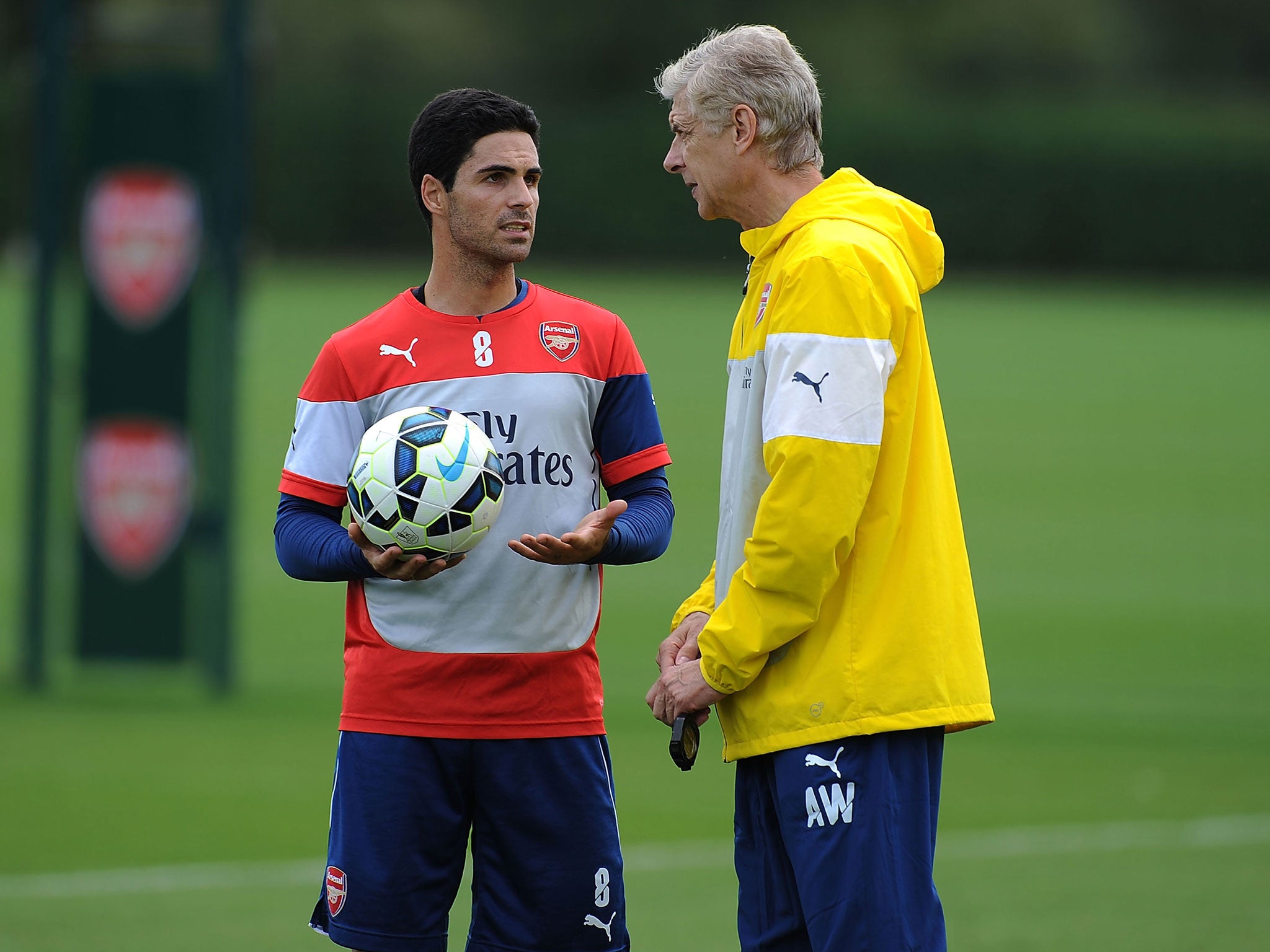Arsenal's hire of Unai Emery may feel short-termist, but perhaps that is no bad thing
Choosing Emery over Arteta suggests Arsenal have been smart enough to appreciate the realities of modern football rather than blindly trying to continue along the same path

Your support helps us to tell the story
From reproductive rights to climate change to Big Tech, The Independent is on the ground when the story is developing. Whether it's investigating the financials of Elon Musk's pro-Trump PAC or producing our latest documentary, 'The A Word', which shines a light on the American women fighting for reproductive rights, we know how important it is to parse out the facts from the messaging.
At such a critical moment in US history, we need reporters on the ground. Your donation allows us to keep sending journalists to speak to both sides of the story.
The Independent is trusted by Americans across the entire political spectrum. And unlike many other quality news outlets, we choose not to lock Americans out of our reporting and analysis with paywalls. We believe quality journalism should be available to everyone, paid for by those who can afford it.
Your support makes all the difference.David Moyes' recent departure from West Ham had very little in common with Arsene Wenger's Arsenal exit except timing, but in Moyes' past lies a lesson, a lesson that has made Arsenal believe Unai Emery to be the right choice to succeed Arsene Wenger.
The clue lies in succession.
Following on from the decades of unprecedented success under Sir Alex Ferguson, Manchester United believed they could buck the trend of world football where managers came and went as short-term fixes to launch another dynasty under Moyes. We all know how that ended, with the 55-year-old Scot having already been through three more clubs since leaving United - and still having a year left on the original contract signed to succeed Ferguson.
What United were trying to do was continue what had worked for them for so long against all reasonable expectation. It was, in short, swimming against the stream without acknowledging that the current of elite European football was far too strong. There are too many economic factors at play and too many huge personnel investments in the playing squad for the modern manager to stay in place for decades. It is an entirely unreasonable, unrealistic concept in the modern game and the exceptions to this rule are the ones that prove it.
Arsenal's favouring of Mikel Arteta for much of their recruitment process was significant for a number of reasons. It clearly had at its core the intention of being a long-term hire, as most coaching hires usually start out being, and leant more on the model that has seen success for Pep Guardiola at Barcelona and Zinedine Zidane at Real Madrid. Arteta's inexperience was eventually something Arsenal weren't prepared to gamble on with the club on the slide, but choosing Unai Emery tells us far more about Arsenal's mindset than simply the fact that they took him over the rookie.
Emery profiles in no way as a long-term hire. That is not a negative, it's an observation based on his history, the realities of the footballing environment Arsenal find themselves in but also in the words of players that know Emery well. "Videos, videos, videos," said Marco Verratti, exhausted with the PSG coach. "I worked with him for three years ... I couldn’t handle a fourth," said Joaquin, who enjoyed Emery's spell at Valencia but, like many players, found it all a little intense.
This is a club that could benefit from a bit of intensity and some new ideas, but they also appeared to have skipped out the painful step of slow realisation that the old model no longer works. Trying to find a long-term project hire is admirable in many ways, given how rarely they are successful, but Arsenal might just have saved themselves years of trouble by hopping onto the wagon of realistic expectations.

Three-year cycles where coaches slot into an existing structure is now the norm, and clubs of a similar financial and reputational standing like Chelsea and post-Pep Barcelona - to an extent - have shown that success can be maintained if the club is well-run.
That is where Arsenal have positioned themselves with this hire and the previous work to install Raul Sanllehi, Huss Fahmy, Darren Burgess and Sven Mislintat around the coach. The eventual defenestration of Arsene Wenger proved to be the hard-nosed business decision that the club needed to take when sentimentality and inaction would have been easier. Emery over Arteta may not be immediately popular, and it's certainly not a case of the club continuing on the same course, but that does not necessarily mean it's a bad thing.
Join our commenting forum
Join thought-provoking conversations, follow other Independent readers and see their replies
Comments